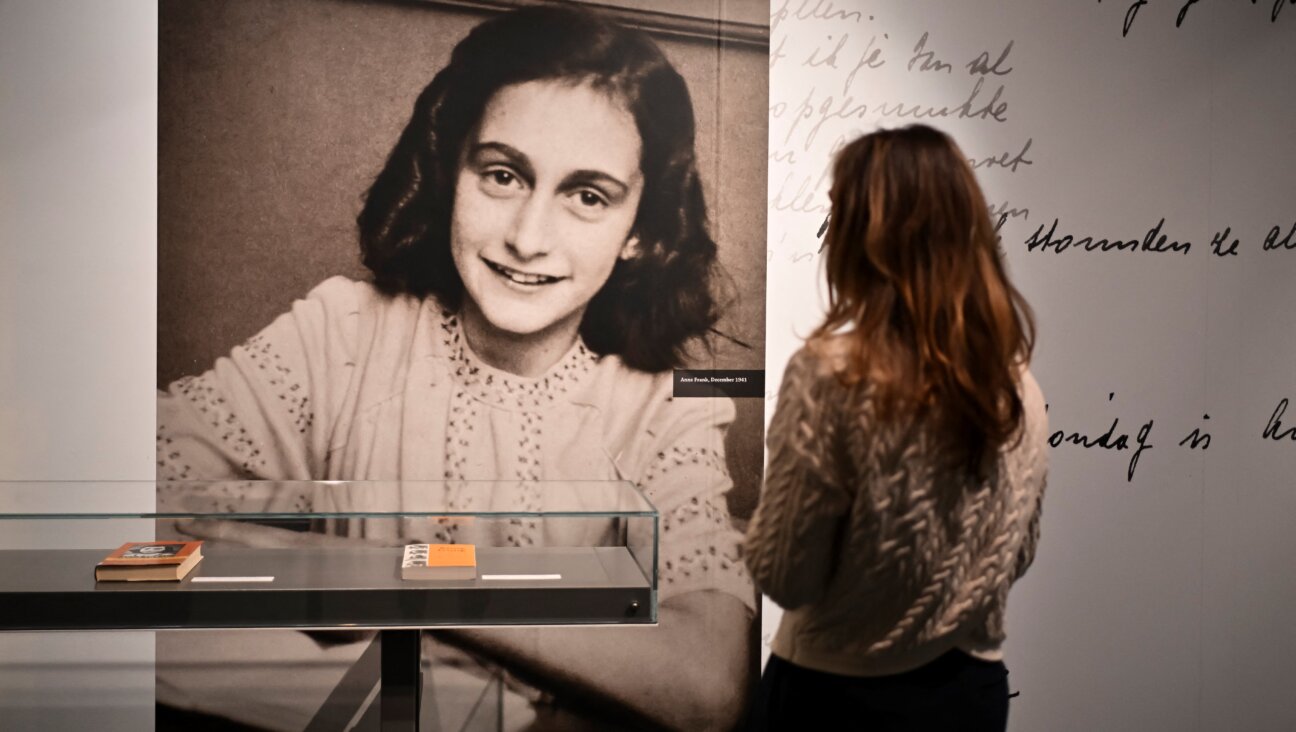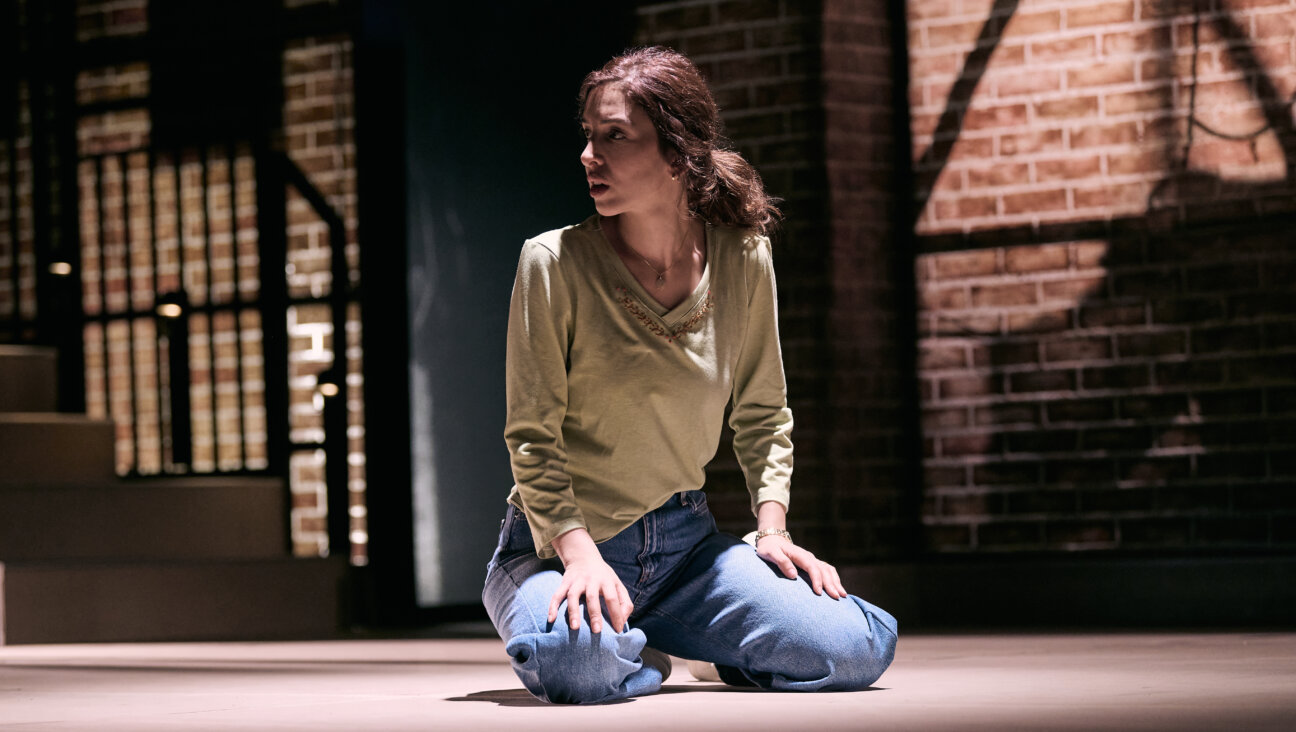Back to Berlin
What would happen if, in our time, a German chancellor urged 6 million Jews to relocate to Germany? That is the question posed by Israel Horovitz’s play “Lebensraum,” which will enjoy a limited engagement at off-Broadway’s Kirk Theatre at Theatre Row from December 13 through December 30.
In “Lebensraum,” a German chancellor does indeed make the entreaty mentioned above, promising all Jewish immigrants citizenship and employment. The play features a cast of three actors (T. Ryder Smith, Suli Holum and Ryan Young) portraying more than 80 characters, including a laid-off Jewish dock-worker who travels from Massachusetts to Bremerhaven; an Auschwitz survivor who returns to Berlin to find the woman who betrayed his family to the Nazis; a young German girl who falls in love with one of the new citizens, and many others. With the influx of inhabitants, many native Germans are displaced, much to their displeasure.
“Lebensraum” marks the start of a busy time for Horovitz, who has about 50 full-length stage works to his credit as well as screenplays for numerous films. In January 2007, after “Lebensraum” closes, the small Barefoot Theatre Company will present “Israel Horovitz’s New Shorts,” a compilation of nine new Horovitz plays, at the 78th Street Theatre Lab. Then, in February, the producing wing of The New York Playwrights Lab, a society of scribes founded by Horovitz in 1975, will launch with the premiere of the author’s “The Secret of Mme. Bonnard’s Bath” on Theatre Row. Because it kicks off this loose celebration, this staging of “Lebensraum” is of particular import.
“Some of [my plays] are quite good, some of them are less than quite good. I think that ‘Lebensraum’ is quite good,” Horovitz said in an interview before acknowledging ‘that opinion and $1 will buy you a copy of the Forward.”
In the late 1800s, the word Lebensraum, which means “living space,” came to represent an ideology that held there was not enough room for the expansion of the German people. Adolf Hitler embraced this philosophy and used it to justify his expansionist principles.
Horovitz was inspired to write “Lebensraum” after he took a particularly disturbing journey to Germany more than a decade ago. Although Germany is seen by many as one of the least antisemitic countries in Europe today, Horovitz’s experience was different. There to see productions several of his plays, he remembers meeting an actress who told him: “You can’t have Jewish character in plays in Germany… it doesn’t ‘smell’ good.” This led him to have a discussion with his German translator, a young woman who had grown up knowing not a single Jew. Horovitz learned that it had been hard for her traveling the world, because of anti-German sentiment after the war.Horovitz began to believe that Germans of her generation would one day think, “These abstract Jews are causing me a lot of trouble.” It was exactly the sort of sentiment that, he thought, could lead to another Holocaust — and trying to evoke it in modern terms became the goal for this play.
If the piece sounds too serious to bear, it’s not all Sturm und Drang. There are many light moments — including one in which an actor simultaneously plays two elderly Jews in the midst of an argument — and good deal of the play’s humor draws on old-time shtick (“He opened a business as a Mr. Fix-It,” one character says. “He should have called his business Mr. Break-It-Worse!”).
“It’s a blend of comedy and tragedy,” Horovitz said. “I don’t think the subject can be treated with somber seriousness and still find an audience.”
The play, first produced almost a decade ago, has been presented all over the world. While it is about a particular people, the events portrayed could happen to anyone. “The threat of genocide is universal, and the play incorporates universal themes in an intensely entertaining way to make this very point,” noted Jonathan Rest, who directed the piece. “‘Lebensraum’ is about fear of people different from ourselves. Given what’s going on in our country and in the world, can you think of a more timely and important topic?”
Cara Joy David is a freelance writer whose work has appeared in SPY, Soap Opera Weekly, The New York Times and other publications.
A message from our Publisher & CEO Rachel Fishman Feddersen

I hope you appreciated this article. Before you go, I’d like to ask you to please support the Forward’s award-winning, nonprofit journalism so that we can be prepared for whatever news 2025 brings.
At a time when other newsrooms are closing or cutting back, the Forward has removed its paywall and invested additional resources to report on the ground from Israel and around the U.S. on the impact of the war, rising antisemitism and polarized discourse.
Readers like you make it all possible. Support our work by becoming a Forward Member and connect with our journalism and your community.
— Rachel Fishman Feddersen, Publisher and CEO























